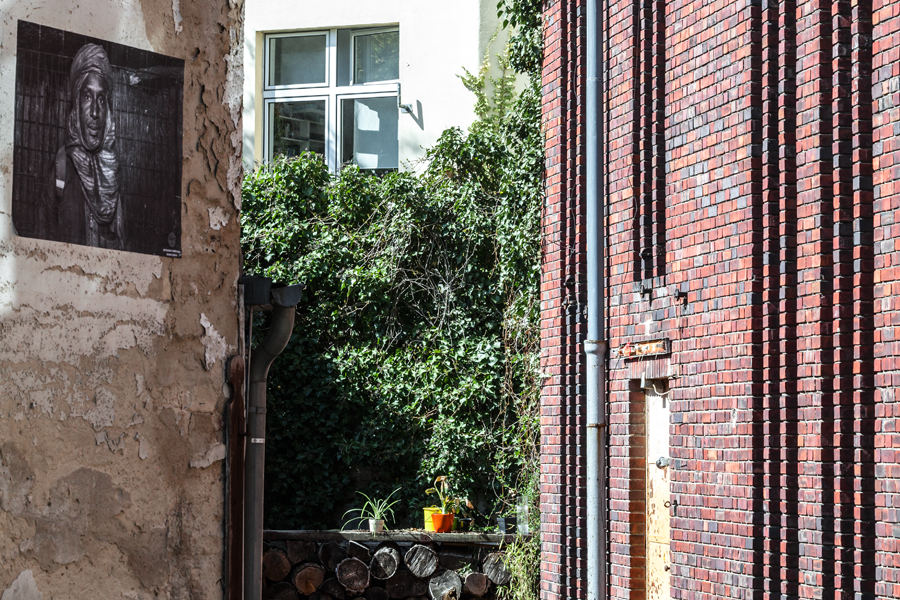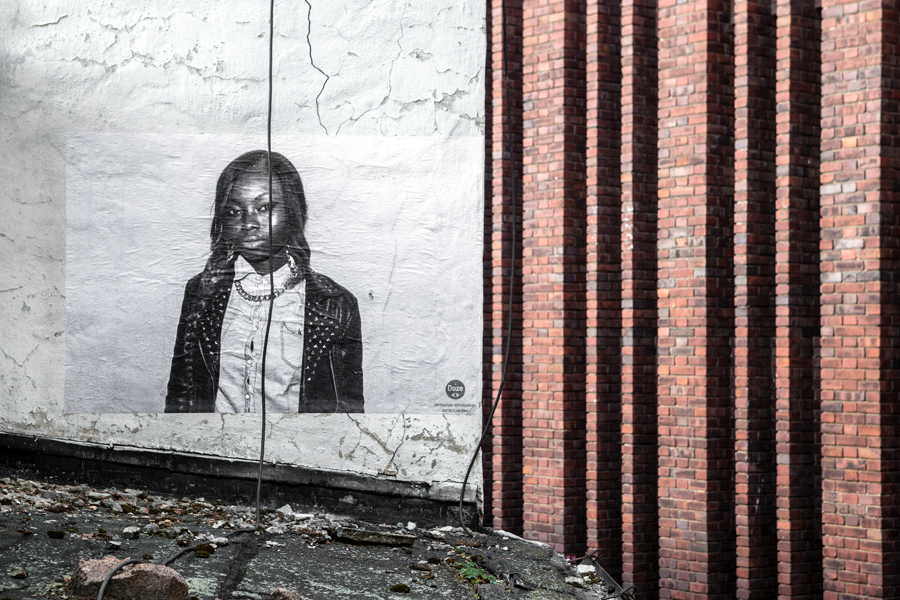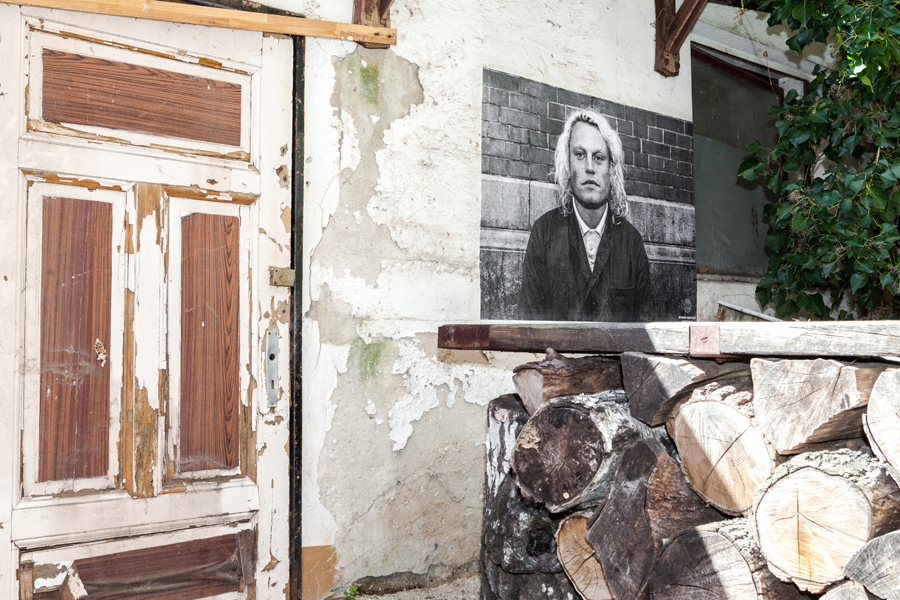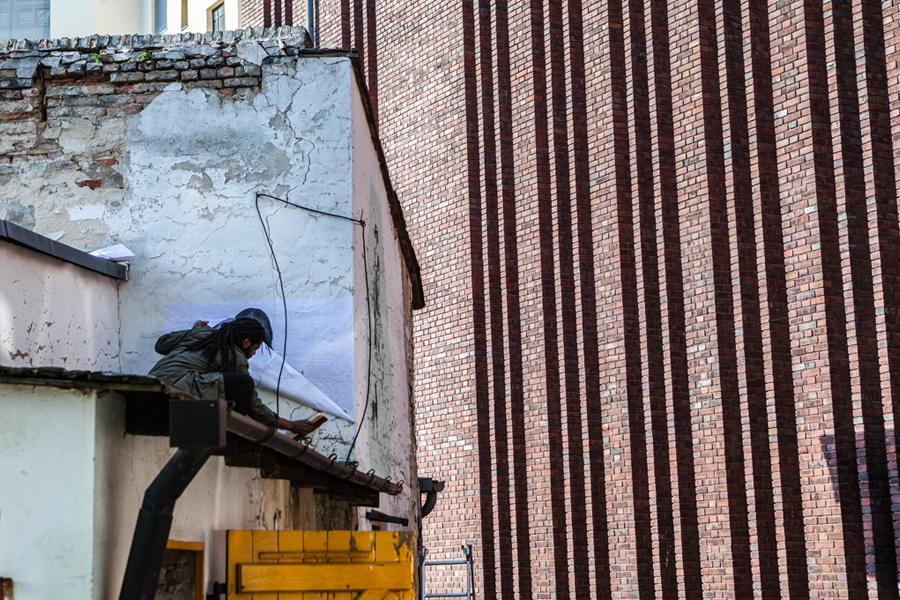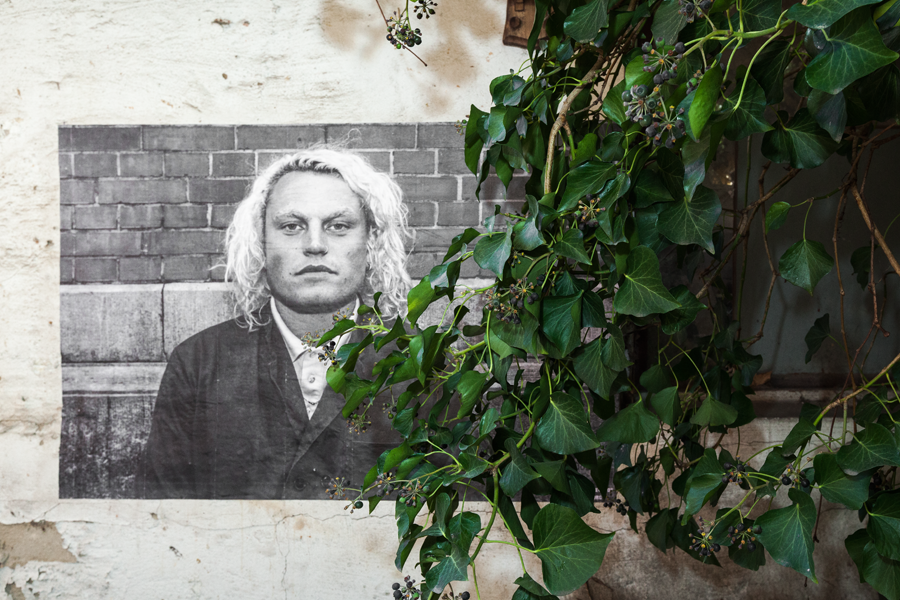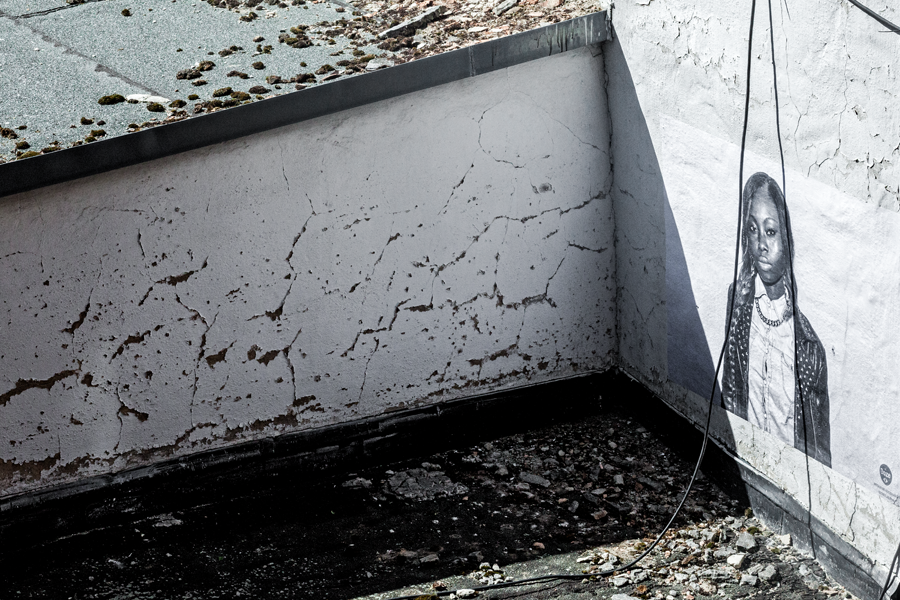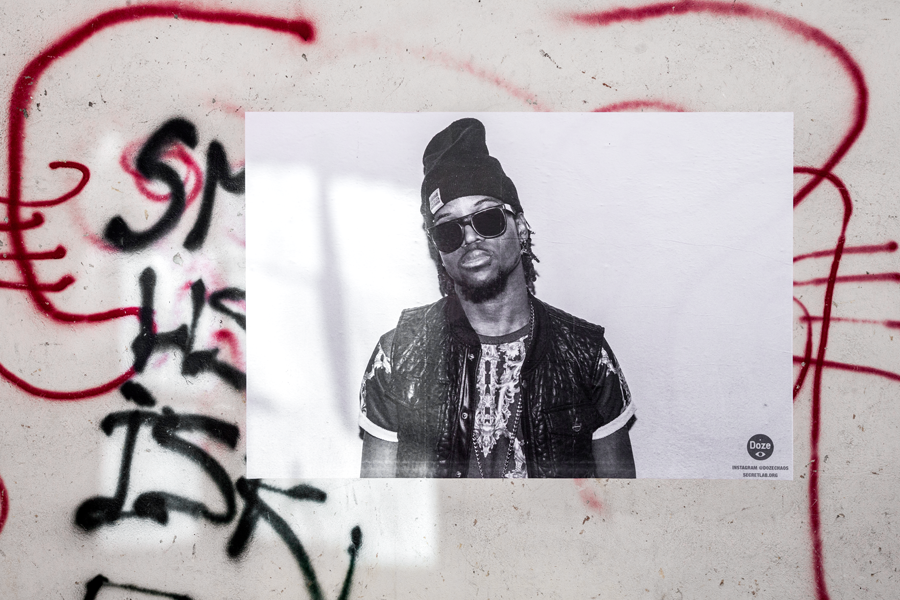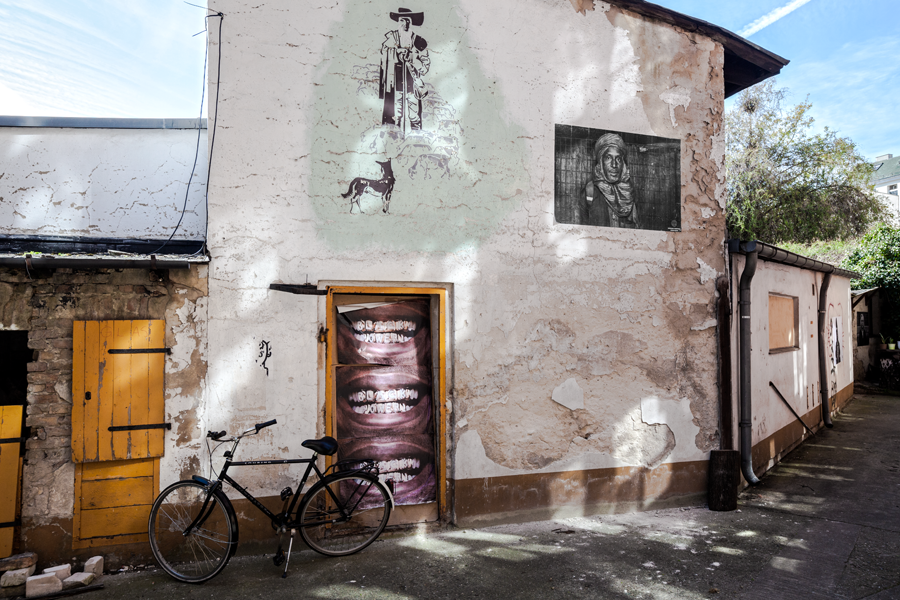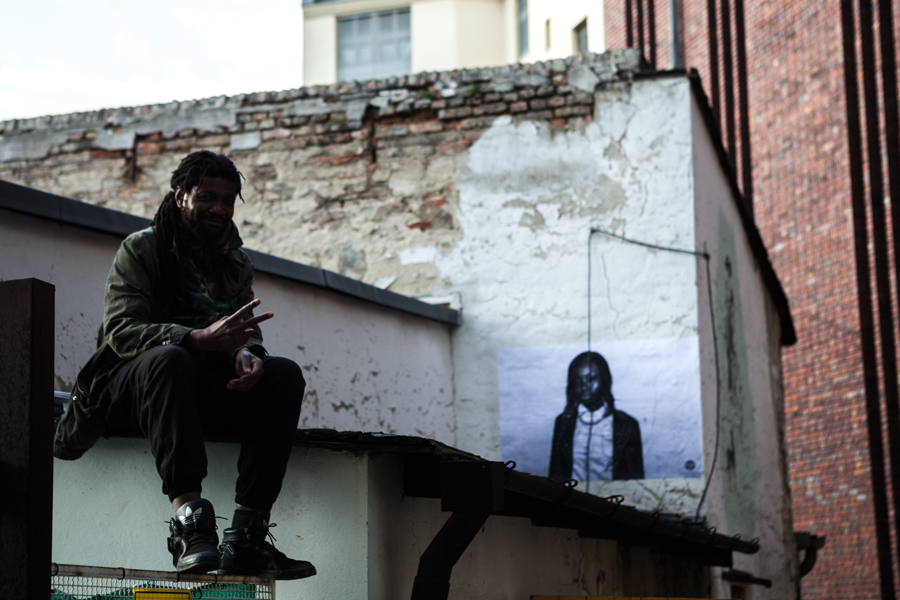Crypsis: Urban Photography
Micro Exhibition in the Savvy back yART
Summer 2015–as long as it lasts
With Doze a.k.a. Lansy Siessie
If a man has his eyes bound, you can encourage him as much as you like to stare through the bandage, but he’ll never see anything. He’ll be able to see only when the bandage is removed.
Doze – the photographer, the urban surveyor– looks for bandages, covers and mimicries in urban geographies: he gives priority to the rough edges of the metropolitan wakes – by engulfing in it he loses himself, beats himself, crumbles and voluntarily leaves something there.
Urbanity is a bohemia where the self-worshipping stages itself, where postures establish themselves and where boldness becomes one principle in the Decalogue of the homo urbanicus. In Doze’s street photography we experience the many ways of being on the street. This straight, bituminous line comes with its own travel guides. When trying to capture the tremors that are underlying cities worldwide one must get lost or, more accurately, one must clear oneself from one’s place of origin to gain nothing but the strength of arriving encounters. Doze carefully observes with a naked eye before placing the subject in the heart of his chosen frame, thereby listening to the unique beat of the moment, the street and the city which then creates a singular resonance. The street has to be listened to. Sound strata offer themselves to those who seize them: rhythms that snort, tempos marked by traffic lights and comforting clatter.
Doze is a dynamic urban practitioner and a privileged witness. During his European research and photography tour the object changes with every street corner. The portrayed who belong to a, to this place, carry with them what could be called the genesis of a photographic representation. The chosen subject responds (or not) to the intrusion and is invited to regain control. Then begins a delicate dance that carries the ephemeral couple deeper into the beats of the streets. If the street is a stage where the images are taken, lend and exchanged, haggling is complexly crucial. Without creating an absolute truth, it is comforting to assume that not all the streets are engaged in the same way in the interplay with the camera. The charcoal grey streets of Brussels, Amsterdam, Paris, Berlin or Barcelona animate the photographer to reinvent a proper camouflage for each trip.
While touring, Doze gives the taken images back: Cobblestone walls and smooth marble surfaces become receptacles carefully chosen to create larger than life-collages communicating with their environment. Monumental or simple, these outdoor installations offer an insight into the intimacy of a place as well as of an identity - by following the methods of urban mimicry and architectural camouflage. To paraphrase Clément Rosset: Reality is tolerable only insofar as it manages to be forgotten.
Mini-interview accompanying the mini-exhibition
Doze, who is your ideal subject? What raises your attention?
My favorite subject are people, I love to focus on little details. You know, try to to catch a personality trait that is not obvious when looking at the person the first time. I try to catch something that you need time to digest, so you come back to the pic and have a different view.
How does your working method synchronize with varying surroundings?
My eyes and my body need to be synchronized first, so I can be in resonance with the surrounding. I love walking in the streets and getting lost helps me create new paradigms. Each surrounding has its own rhythm.
Is the ideal exhibition space the open, the public?
I love the public space to exhibit my pictures because it allows the physical clash between the architectural and natural elements, and it is in direct interaction with people.
That being said, I also like galleries, the constraints are so much different. You don't have the same space, you need to follow some rules and get to an agreement on the use of the space, where/how to display your work… You don't feel as free as outside but that's an interesting exercise. I think both are complementary actually. So I try to juggle and alternate between them.
by Anna Jäger
